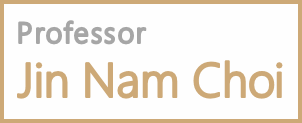20. * Shin, Y., Kim, M. S., Choi, J. N., Kim, M., & Oh, W. (2017). Does leader-follower regulatory fit matter? The role of regulatory fit in followers’ organizational citizenship behavior. Journal of Management, 43, 1211-1233.
*Shin, Y., Kim, M. S., Choi, J. N., Kim, M., & Oh, W. (2017). Does leader-follower regulatory fit matter? The role of regulatory fit in followers’ organizational citizenship behavior. Journal of Management, 43, 1211-1233.
3. Choi, J. N., Chung, G. H., Sung, S. Y., Butt, A. N., Soliman, M., & Chang, J. W. (2015). Does emotional intelligence matter in interpersonal processes? The mediating role of emotion management. Seoul Journal of Business, 21, 45-70.
Choi, J. N., Chung, G. H., Sung, S. Y., Butt, A. N., Soliman, M., & Chang, J. W. (2015). Does emotional intelligence matter in interpersonal processes? The mediating role of emotion management. Seoul Journal of Business, 21, 45-70.
2. Choi, J. N. (2006). Organizational active learning: Implications for innovation adoption and implementation. International Journal of Innovation and Learning, 3, 198-213.
Choi, J. N. (2006). Organizational active learning: Implications for innovation adoption and implementation. International Journal of Innovation and Learning, 3, 198-213.
2. Price, R. H., Choi, J. N., & Lim, S. G. P. (2007). Beyond the iron rice bowl: Life stage and family dynamics in unemployed Chinese workers. In M. Warner & G. Lee (Eds.), Unemployment in China (pp. 108-127). London, UK: Routledge-Curzon.
Price, R. H., Choi, J. N., & Lim, S. G. P. (2007). Beyond the iron rice bowl: Life stage and family dynamics in unemployed Chinese workers. In M. Warner & G. Lee (Eds.), Unemployment in China (pp. 108-127). London, UK: Routledge-Curzon.
1. Choi, J. N. (2003). How does context influence individual behavior? Multilevel assessment of implementing social innovations. Prevention & Treatment, 6 (Article 23), 1-8.
Choi, J. N. (2003). How does context influence individual behavior? Multilevel assessment of implementing social innovations. Prevention & Treatment, 6 (Article 23), 1-8.
1. Price, R. H., Friedland, D. S., Choi, J. N., & Caplan, R. D. (1998). Job-loss and work transitions in a time of global economic change. In X. B. Arriaga & S. Oskamp (Eds.), Addressing Community Problems: Psychological Research and Interventions (pp. 195-222). Thousand Oaks, CA: Sage.
Price, R. H., Friedland, D. S., Choi, J. N., & Caplan, R. D. (1998). Job-loss and work transitions in a time of global economic change. In X. B. Arriaga & S. Oskamp (Eds.), Addressing Community Problems: Psychological Research and Interventions (pp. 195-222). Thousand Oaks, CA: Sage. Also Available on the World Wide Web: http://www.isr.umich.edu/src/seh/mprc/public.html
43. Gong, T., & Choi, J. N. (2016). Effects of task complexity on creative customer behavior. European Journal of Marketing, 50, 1003-1023.
Gong, T., & Choi, J. N. (2016). Effects of task complexity on creative customer behavior. European Journal of Marketing, 50, 1003-1023.
42. * Shin, Y., Kim, M., Choi, J. N., Lee, S.-H. (2016). Does team culture matter? Roles of team culture and collective regulatory focus in team task and creative performance. Group & Organization Management, 41, 232-265.
* Shin, Y., Kim, M., Choi, J. N., Lee, S.-H. (2016). Does team culture matter? Roles of team culture and collective regulatory focus in team task and creative performance. Group & Organization Management, 41, 232-265.
41. * Gong, T., Choi, J. N., & Murdy, S. (2016). Does customer value creation behavior drive customer well-being? Social Behavior and Personality, 44, 59-76.
* Gong, T., Choi, J. N., & Murdy, S. (2016). Does customer value creation behavior drive customer well-being? Social Behavior and Personality, 44, 59-76.
40. Yoon, H. J., Sung, S. Y., Choi, J. N., Lee. K., & Kim, S. (2015). Tangible and intangible rewards and employee creativity: The mediating role of situational extrinsic motivation. Creativity Research Journal, 27, 383-393.
Yoon, H. J., Sung, S. Y., Choi, J. N., Lee. K., & Kim, S. (2015). Tangible and intangible rewards and employee creativity: The mediating role of situational extrinsic motivation. Creativity Research Journal, 27, 383-393.
